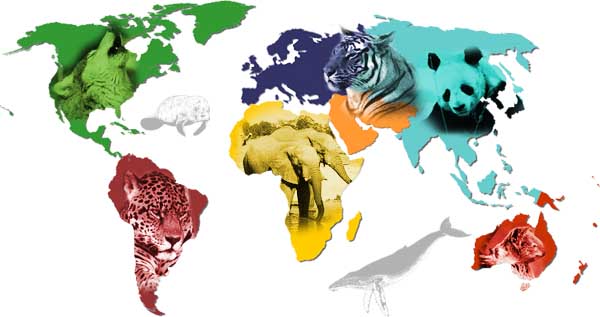
In order to conserve the biodiversity of the planet, one must take into consideration the reasons why so many species are becoming endangered. Habitat loss is the most widespread cause of species endangerment. When an animal’s ecosystem is not maintained, they lose their home and are either forced to adapt to new surroundings or perish. Pollution is another factor that causes many species to become endangered. Also, over-exploitation, disease and climate change have led to the endangerment of several species.
IMPACT BY HUMANS:-
Humans have an impact on the species and their environment. “As human use of resources, energy, and space intensified over the past few centuries, the diversity of life has been substantially diminished in most parts of the world”.
IMPORTANCE OF SPECIES:-
Diversity of life and living systems are a necessary condition for human development.Conservation efforts prove costly and time consuming. Species should be saved for aesthetic and moral justifications; the importance of wild species as providers of products and services essential to human welfare; the value of particular species as indicators of environmental health or as keystone species crucial to the functioning of ecosystems; and the scientific breakthroughs that have come from the study of wild organisms.species serve as a source of art and entertainment, provide products such as medicine for human well-being, indicate the welfare of the overall environment and ecosystem, and provided research that resulted in scientific discoveries.
PRESERVING ENDANGERED SPECIES:-
It is the goal of conservationists to create and expand upon ways to preserve endangered species and maintain biodiversity. There are several ways in which one can aid in preserving the world’s species who are nearing extinction. One such way is obtaining more information on different groups of species, especially invertebrates, fungi, and marine organisms, where sufficient data is lacking.
People should create a new professional society dedicated to ecological ethics. This could help ecologists make ethical decisions in their research and management of biodiversity. Also, creating more awareness on environmental ethics can help encourage species preservation.Courses in ethics for students, and training programs for ecologists and biodiversity managers all could create environmental awareness and prevent violations of ethics in research and management.Ecologists have proposed biological corridors, biosphere reserves, ecosystem management, and ecoregional planning as approaches to integrate biodiversity conservation and socioeconomic development at increasingly larger spatial scales.









